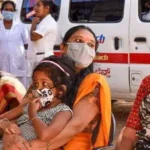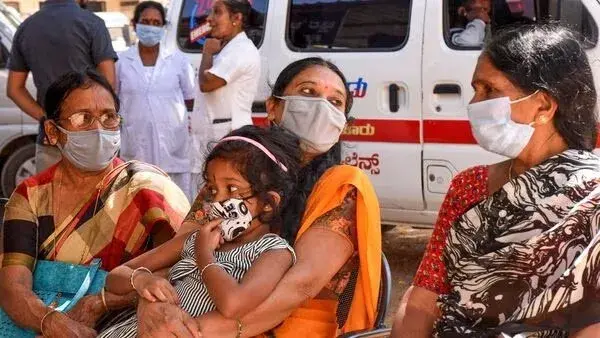-By ArdorComm News Network
December 27, 2023
Amid a surge in COVID-19 cases, several Indian states are urging citizens to adhere to coronavirus protocols. As of December 25, Kerala leads with 3,096 active cases, followed by Karnataka (436), Maharashtra (168), Gujarat (56), and Tamil Nadu (139). The Union Health Ministry reported 69 cases of the JN.1 COVID subvariant in the country.
In response to the variant’s presence, Himachal Pradesh health officials issued an advisory. Chief medical officers are instructed to test individuals with COVID-19 symptoms, emphasizing vigilance. Dr. Sanjeev Kumar from Una recommended immediate testing for those with symptoms like cold, fever, or cough, while stressing the importance of mask-wearing.
Karnataka Health Minister Dinesh Gundu Rao confirmed 34 cases of the JN.1 variant in the state, reassuring the public that the situation is under control. Deputy Chief Minister DK Shivakumar urged citizens not to panic, emphasizing that the health minister would provide updates.
In a surprising turn, BJP MLA Basanagouda Patil Yatnal threatened to reveal a purported ₹40,000-crore “Covid scam” if expelled from the party. Yatnal alleges that the Karnataka BJP government, led by B S Yediyurappa, engaged in massive corruption during the peak of the COVID-19 pandemic.
Delhi’s Health Minister Saurabh Bharadwaj stated that the city’s COVID positivity rate is around 1%. While advising caution during winter festivals, he assured the public that additional genome sequencing is being conducted.
Meanwhile, a new COVID-19 case surfaced in Khurda district, Odisha, bringing the state’s total to three. All three individuals exhibit mild symptoms and are undergoing home treatment.
Responding to the escalating cases, the Karnataka government’s coronavirus sub-committee implemented measures, including mandatory mask-wearing, home isolation, and caution against sending symptomatic children to schools.
Dr. Shekhar C Mande, former Director-General of CSIR, emphasized the significance of disease surveillance in India, not only for COVID-19 but also for tracking the spread of various infections, including antimicrobial resistance. He highlighted the usefulness of surveillance methods such as wastewater analysis in detecting variants like JN.1.
The World Health Organization (WHO) has labeled JN.1 as a ‘variant of interest,’ distinct from its counterpart BA.2.86. Despite this, WHO maintains that the risk from JN.1 remains low for now


